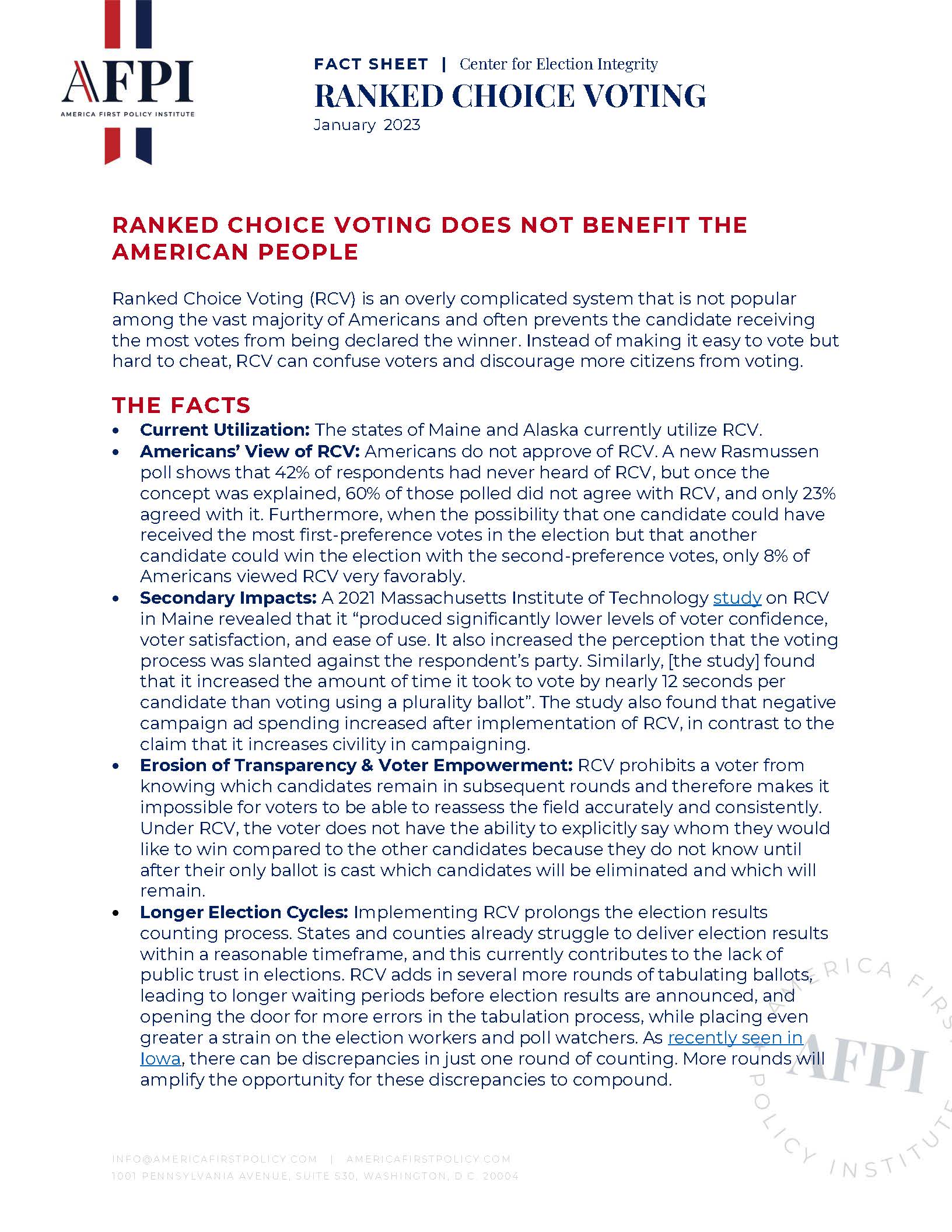January 12, 2023
Ranked Choice Voting.
RANKED CHOICE VOTING DOES NOT BENEFIT THE AMERICAN PEOPLE
Ranked Choice Voting (RCV) is an overly complicated system that is not popular among the vast majority of Americans and often prevents the candidate receiving the most votes from being declared the winner. Instead of making it easy to vote but hard to cheat, RCV can confuse voters and discourage more citizens from voting.
THE FACTS
- Current Utilization: The states of Maine and Alaska currently utilize RCV.
- Americans’ View of RCV: Americans do not approve of RCV. A new Rasmussen poll shows that 42% of respondents had never heard of RCV, but once the concept was explained, 60% of those polled did not agree with RCV, and only 23% agreed with it. Furthermore, when the possibility that one candidate could have received the most first-preference votes in the election but that another candidate could win the election with the second-preference votes, only 8% of Americans viewed RCV very favorably.
- Secondary Impacts: A 2021 Massachusetts Institute of Technology study on RCV in Maine revealed that it “produced significantly lower levels of voter confidence, voter satisfaction, and ease of use. It also increased the perception that the voting process was slanted against the respondent’s party. Similarly, [the study] found that it increased the amount of time it took to vote by nearly 12 seconds per candidate than voting using a plurality ballot”. The study also found that negative campaign ad spending increased after implementation of RCV, in contrast to the claim that it increases civility in campaigning.
- Erosion of Transparency & Voter Empowerment: RCV prohibits a voter from knowing which candidates remain in subsequent rounds and therefore makes it impossible for voters to be able to reassess the field accurately and consistently. Under RCV, the voter does not have the ability to explicitly say whom they would like to win compared to the other candidates because they do not know until after their only ballot is cast which candidates will be eliminated and which will remain.
- Longer Election Cycles: Implementing RCV prolongs the election results counting process. States and counties already struggle to deliver election results within a reasonable timeframe, and this currently contributes to the lack of public trust in elections. RCV adds in several more rounds of tabulating ballots, leading to longer waiting periods before election results are announced, and opening the door for more errors in the tabulation process, while placing even greater a strain on the election workers and poll watchers. As recently seen in Iowa, there can be discrepancies in just one round of counting. More rounds will amplify the opportunity for these discrepancies to compound.
